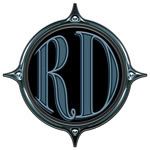It’s always good to take a look back. It shows how much things can change. Some times we see that even the bad times will pass. Some times we look back and see how wrong we were. I mean look at former Atlanta Falcons GM, Ken Horecks quote at the end of this article. Man how wrong can you be.
(I found this Milwaukee Journal Sentinel article while researching another post)
Atlanta - The reaction when the Atlanta Falcons traded Brett Favre to the Green
Bay Packers was immediate.
"Lots of heat," former Green Bay general manager
Ron Wolf remembered this week.
Mind you, Wolf was the guy who got Favre, not
the one who traded for his services.
The Falcons? They had just acquired a
first-round pick for a player they drafted in the second round the previous year
who was overweight, loved carousing and was so undisciplined that he didn't show
up for the team picture.
Besides, they already had a quarterback - Chris
Miller - who had led the team to its first playoff victory in 13 years, had just
returned from the Pro Bowl and was only 26 years old.
History will not
remember that 1992 trade that way, of course.
The Packers got the National
Football League's only three-time league MVP, a quarterback some argue to be the
greatest ever, and a player who in 11 seasons has led the Packers to 115
regular-season victories, seven post-seasons and two Super Bowls. In addition,
he has started 173 consecutive regular-season games, an NFL record for
quarterbacks.
The Falcons got Tony Smith.
Said Lee Remmel, the Packers
public relations director and team historian: "It was a master stroke."
When
Favre goes under center against Atlanta in a wild-card playoff game Saturday
night in Green Bay, Falcons fans probably won't remember it that way. Favre, at
least, understands why the trade went down.
"If I was in their position," he
said this week from Green Bay, "I would have done the same thing."
Favre
fondly remembers his one season as a Falcon, particularly the team and its run
to the playoffs, a wild-card berth with a 10-6 record.
"Not really knowing
what was going on, but knowing it was really something special," he said. "I've
never taken the playoffs for granted."
Those who were around him remember a
huge talent and a character who infuriated coach Jerry Glanville with his
frequent tardiness, poor work habits and a taste for night life. Glanville had
four rules: 1) Be on time. 2) Prepare all week to play. 3) Spill your guts on
the field. 4) Only accept victory.
"If he'd have got to 3 and 4, he'd have
been fine," Glanville said. "But you had to get past 1 and 2."
Said Favre:
"I'm sure I didn't help my cause by trying to drink up Atlanta."
How the
trade happened depends on whom you believe. Time and coming up on the short end
of one of the most lopsided trades in sports have a way of playing with one's
memory.
Glanville says the trade was made without his knowledge, that the
first he heard of it was when he showed up to work on the day of the
trade.
Then-player personnel vice president Ken Herock could not see it more
differently. Herock says he was enamored of Favre's talent but that Glanville
pushed him to make the trade.
"I'd go scouting for three or four days a week
(during the season) and come back, and all I'd hear is 'Take a look at this tape
(from practice). He ain't doing nothing,' " Herock said. "I used to get sick of
it."
Favre has heard a lot of versions.
"Ken has always said that he was
in my corner," Favre said. "And, of course, Jerry, since I came here and played
well, he's always said that, 'I told 'em I wanted you,' but I question
that.
"I don't have any beefs with anybody from Atlanta. I can't blame them
for getting rid of me, to be totally honest with you."
June Jones, who was
Glanville's offensive coordinator, later succeeded Glanville as head coach and
now coaches at the University of Hawaii, said the Falcons coaches thought Favre
could play down the road, but they felt pressure to win immediately.
Trading
Favre for a first-round pick would help them do that. Where a general manager's
motive is team building, coaches feel heat to win games, or as Jones put it,
"Don't tell me about three years from now. I might not be here."
Said Jones:
"I think, in general, both guys were right."
Or wrong.
Either way, Favre
was traded. Miller tore up his knee the next season. His final season with the
Falcons was 1993, same as Glanville. Herock left the team in 1997, shortly after
the arrival of coach Dan Reeves.
Today, Mike Vick is the Falcons' 11th
starting quarterback since the trade.
The mistake was compounded when the
Falcons spent the Packers' first-round pick on Smith, a running back who had
been Favre's teammate at Southern Mississippi. He played in 33 games and was out
of the league by 1995, the first of Favre's three consecutive MVP
seasons.
Favre says he often is asked what would have happened if he hadn't
been traded, but doesn't give it much thought.
Said Wolf: "I'm sure what
would have happened is what happened in Green Bay."
Maybe the Falcons
eventually received some sort of payback.
As Herock pointed out, if the
Falcons had never traded Favre, "They wouldn't have Vick now."


No comments:
Post a Comment